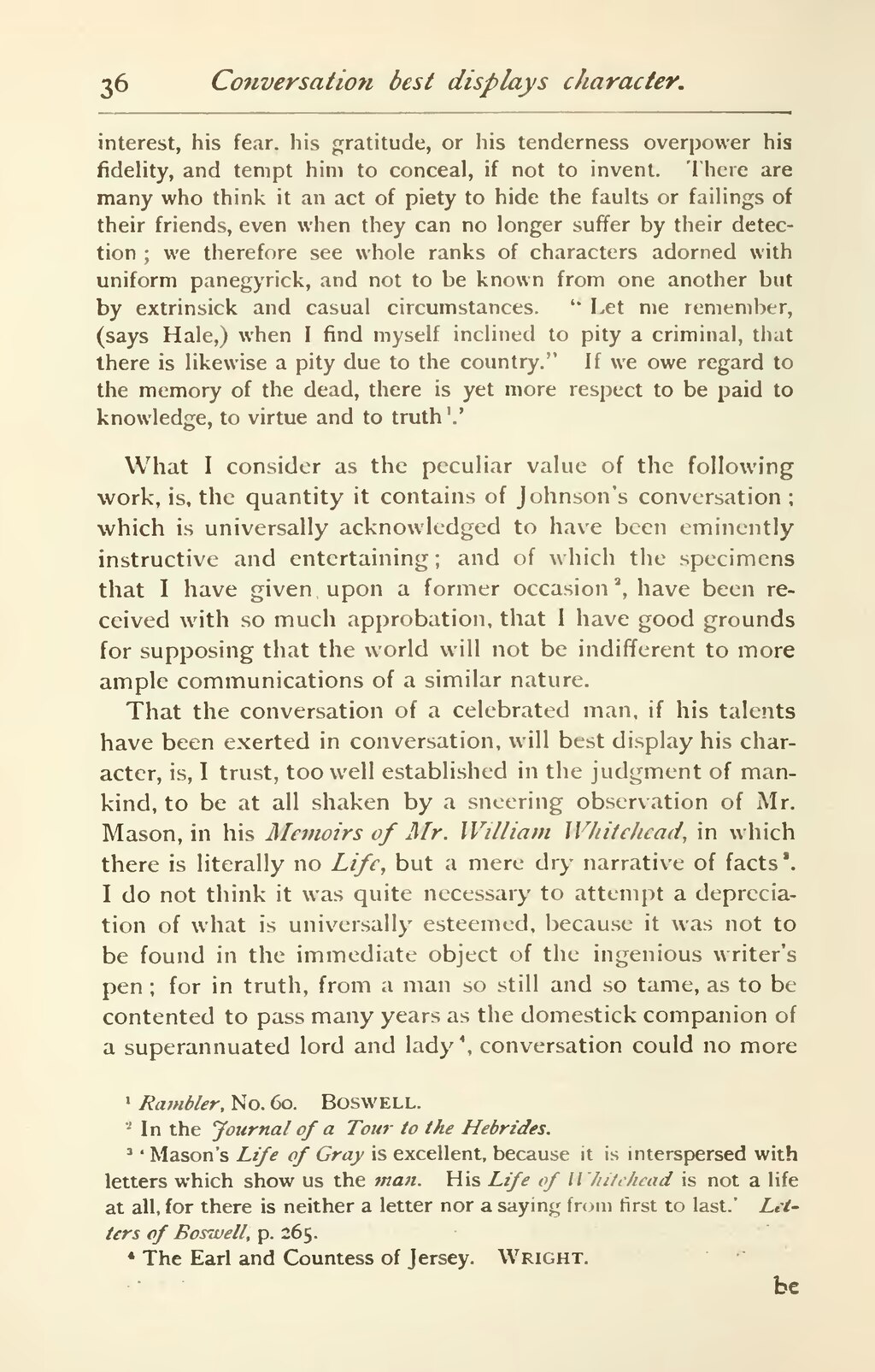interest, his fear, his gratitude, or his tenderness overpower his fidelity, and tempt him to conceal, if not to invent. There are many who think it an act of piety to hide the faults or failings of their friends, even when they can no longer suffer by their detection; we therefore see whole ranks of characters adorned with uniform panegyrick, and not to be known from one another but by extrinsick and casual circumstances. "Let me remember (says Hale,) when I find myself inclined to pity a criminal, that there is likewise a pity due to the country." If we owe regard to the memory of the dead, there is yet more respect to be paid to knowledge, to virtue and to truth[1].'
What I consider as the peculiar value of the following work, is, the quantity it contains of Johnson's conversation; which is universally acknowledged to have been eminently instructive and entertaining; and of which the specimens that I have given, upon a former occasion[2], have been received with so much approbation, that I have good grounds for supposing that the world will not be indifferent to more ample communications of a similar nature.
That the conversation of a celebrated man, if his talents have been exerted in conversation, will best display his character, is, I trust, too well established in the judgment of mankind, to be at all shaken by a sneering observation of Mr. Mason, in his Memoirs of Mr. William Whitehead, in which there is literally no Life, but a mere dry narrative of fact[3]. I do not think it was quite necessary to attempt a depreciation of what is universally esteemed, because it was not to be found in the immediate object of the ingenious writer's pen; for in truth, from a man so still and so tame, as to be contented to pass many years as the domestic companion of a superannuated lord and lady[4], conversation could no more
- ↑ Rambler, No. 60. Boswell.
- ↑ In the Journal of a Tour to the Hebrides.
- ↑ 'Mason's Life of Gray is excellent, because it is interspersed with letters which show us the man. His Life of Whitchead is not a life at all, for there is neither a letter nor a saying from first to last.' Letters of Boswell, p. 265.
- ↑ The Earl and Countess of Jersey. Wright.
be
